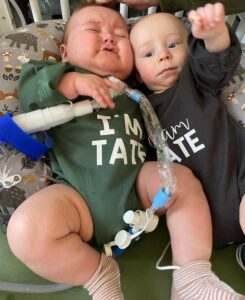
A special guest article by the Pennsylvania Health Law Project (PHLP)
In January 2018, 11,000 older adults and people with disabilities in Southwest PA who had been receiving Medicaid long term services and supports in the community, started receiving those services, including personal assistance services (PAS), from one of three Community HealthChoices (CHC) managed care plans: UPMC Community HealthChoices, PA Health & Wellness, and AmeriHealth Caritas.
For the first six months of the roll-out, CHC participants were entitled to keep receiving the same amount of long term services and supports they had been receiving prior to CHC with the providers they had been using. This six-month “continuity of care period” in the Southwest ended on June 30.
PHLP has been hearing from CHC participants about actions CHC plans are taking to reduce services in this post-continuity of care period. After speaking with these participants and reviewing CHC plan notices and service plans, it appears CHC plans are violating the rights of participants and not following the terms of their agreement with the state.
The problems CHC participants are experiencing include deficient notices reducing services they had been receiving and a lack of appropriate person-centered service planning. Most of the problematic service reduction notices involve PAS.
Notices Sent to Participants Are Inadequate: CHC plans are sending reduction and denial notices to participants that do not include any explanation or reasons for why services are being reduced or why requests for new or increased services are not approved. CHC plans are required to send their members written notice of reductions and denials of services. These notices must detail the reasons for the change or denial. Justifications, which PHLP has documented, like “you have been assessed to need less PAS hours” or “the services are not medically necessary” without any further explanation are insufficient. The CHC participants who have contacted PHLP are receiving notices that do not explain why the CHC plan decided they do not need the services, what has changed to warrant a service reduction, or how requested services are not medically necessary.
Lack of Person Centered Planning: Person-centered service planning is at the core of CHC. It is supposed to be a process in which the CHC participant, working with their service coordinator and anyone else the participant wants involved, identifies her needs, preferences, and goals. This informs the development of a service plan. The person-centered service plan process is so central to the CHC program that home and community-based services, including PAS, received under continuity of care cannot be changed until the process is complete. Yet, PHLP has heard from participants who are being denied services when they have not gone through the service planning process. Others have gone through the process but have not been given a copy of the service plan that was developed. Still others have had incomplete service plans, such as unsigned plans or not having any goals listed at all.
PHLP has shared its concerns with the Department of Human Services (DHS)and will continue to do so as new examples of problems surface. DHS reacted swiftly to the information and specific examples PHLP provided. All three CHC plans have been put in corrective action. As a result, the CHC plans are retraining service coordinators on person-centered planning and submitting to the state for review all notices issued to members when services are denied or reduced. DHS has assigned staff to review every service denial notice until it is satisfied that each CHC plan is complying with the CHC agreement. Moreover, DHS and staff from its Office of General Counsel are meeting in July with senior leadership from each CHC plan to review the minimum content required for a service denial notice when plans deny or reduce a CHC participant’s services.
However, regardless of he corrective actions described above, vigilance from CHC participants and their providers in the Southwest is needed to ensure the CHC program moves into its next phase in the region in a way that does not harm participants but assures their needs are met. CHC participants, their family members or other supports, and providers are encouraged to read notices denying or changing services carefully. These notices include information about how to file an appeal. CHC participants should appeal decisions if they do not agree with them. Appealing quickly will ensure they continue to receive services at the previously approved level while they go through the appeal process.
PHLP strongly encourages CHC participants or their providers or advocates to call the PHLP Helpline at 1-800-274-3258 or email us at [email protected] for advice or help with their appeal. Information about appealing a CHC decision can also be found on PHLP’s website (www.phlp.org). You can also sign up here for the second part of PHLP’s CHC Appeals webinar series which will be held on July 17.







